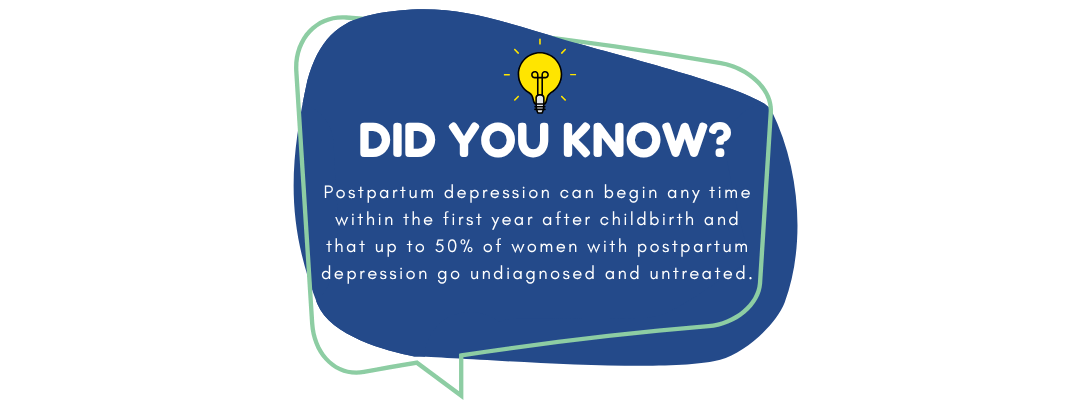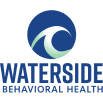How to Tell If It’s Postpartum Depression (Not Just the Baby Blues)
Is it the baby blues or it it postpartum depression? Postpartum depression hits a surprising number of new parents. It brings symptoms that are far more serious than just feeling a little down after having a baby.
The most telling signs? Intense sadness, severe mood swings, trouble bonding with your baby, and crushing feelings of guilt or worthlessness. Spotting these early can make a real difference when it comes to getting help.
This condition doesn’t always show up right away. It can develop a few weeks after delivery, or even months later—sometimes up to a year.
Unlike the typical “baby blues,” which usually fade within two weeks, postpartum depression lingers and can get worse if ignored.
It’s not just mothers who are affected—fathers can experience it, too. So, awareness matters for all new parents.
Watch for changes in sleep, appetite, energy, or if someone starts pulling away from friends and family. These are signs it’s time to reach out for help.
Core Signs of Postpartum Depression
Postpartum depression tends to show up in distinct ways for new moms. There’s the emotional side, the physical changes, and sometimes, real struggles with bonding that don’t just fade after a couple of weeks.
Persistent Sadness or Hopelessness
Sustained sadness or hopelessness is a huge red flag. This isn’t just a few bad days—it can drag on for weeks or months, weighing on everything.
Some moms feel overwhelmed by despair for reasons they can’t explain. Guilt and worthlessness creep in, especially around caring for the baby. Crying spells and irritability? Pretty common, too.
Changes in Sleep and Appetite
Sleep and appetite often go haywire. Sure, everyone expects to be tired with a newborn, but here, even when the baby’s sleeping, rest doesn’t come easily.
Some lose interest in food and drop weight, while others might eat more to cope. Either way, these shifts make everything harder.
Excessive Fatigue
The exhaustion with postpartum depression is relentless. It doesn’t lift, even after a rare full night’s sleep.
Daily tasks start to feel impossible. Many moms feel mentally and physically drained, pulling away from social situations and family. That kind of fatigue chips away at your ability to function.
Difficulty Bonding with Baby
Not everyone talks about it, but struggling to bond with your baby can be a sign. Some moms just feel oddly detached.
They might not feel that rush of love they expected, and guilt follows close behind. This distance can impact both mom and baby, so noticing it early really matters.
 Source: Mayo Clinic
Source: Mayo Clinic
Emotional and Cognitive Symptoms
Postpartum depression isn’t just about feeling sad—it can twist how you think and react. These emotional and mental shifts go way beyond the usual new parent stress.
Irritability and Anger
Irritability can flare up with little warning. Small things suddenly feel huge, and anger can bubble over more often than you’d expect.
Relationships can take a hit, too. Feeling guilty about snapping at loved ones is common, and it can spiral from there.
Anxiety and Excessive Worry
Anxiety is another big one. The worrying doesn’t let up—it’s constant, often about the baby’s health or your own parenting skills, even when there’s no real reason for concern.
Sometimes, it’s physical: racing heart, restlessness, even panic attacks. It can make relaxing or enjoying motherhood feel out of reach.
Feelings of Guilt or Worthlessness
Guilt and worthlessness show up a lot. You might feel like you’re failing or don’t deserve support, even if everyone around you says otherwise.
It’s hard to reach out when you feel this way, but noticing these thoughts is the first step toward getting help.
Social and Behavioral Changes
Postpartum depression can really shift how you relate to people and the world around you. These changes can be subtle or obvious, but they matter.
Withdrawal from Loved Ones
Some new moms start pulling away from friends and family. Calls go unanswered, invitations get declined, and offers of help are brushed off.
It’s easy for loved ones to misread this as disinterest, but it’s often rooted in shame or guilt. The isolation can make things worse, so catching it early is important.
Loss of Interest in Activities
Things that used to bring joy just don’t anymore. Hobbies, social events, even self-care can fall by the wayside.
This loss of interest can be confusing for everyone. It’s not laziness—it’s a symptom that needs attention.
Baby Blues vs. Postpartum Depression
Almost every new mom faces some emotional ups and downs after childbirth. But when does it cross the line from “baby blues” to something more serious?
Duration and Severity of Symptoms
Baby blues usually show up a few days after delivery and fade within two weeks. You might get mood swings, feel anxious, or have crying spells, but it gets better on its own.
Postpartum depression is different. The symptoms are stronger, stick around longer, and don’t just fade away. It can start any time in the first year, not just right after birth.
Recognizing When It’s More Than Baby Blues
If things aren’t improving after two weeks—or if feelings get worse—it could be postpartum depression. Overwhelming guilt, anxiety, or thoughts of harm are serious red flags.
When daily life and caregiving are affected, it’s time to talk to a doctor. Sometimes, support, counseling, or medication is needed, and there’s no shame in that.
Severe Symptoms and When to Seek Help
Some symptoms just can’t wait. If things get really intense, it’s important to act fast.
Thoughts of Self-Harm
Thinking about hurting yourself or your baby is a medical emergency. These thoughts don’t reflect who you are—they’re a symptom, not a character flaw.
If this happens, reach out for help right away. Family, friends, and professionals are there for support, and treatment can help keep everyone safe.
Risk of Postpartum Psychosis
Postpartum psychosis is rare, but it’s serious—about 1 in 1,000 new moms experience it. It usually comes on fast, within the first week.
Symptoms can include confusion, hallucinations, paranoia, and wild mood swings. Hospitalization is often needed, and treatment is available.
Acting quickly protects both mom and baby.
Support, Diagnosis and Treatment Options
Getting help for postpartum depression starts with a proper diagnosis. Support and treatment can make a world of difference.
How Postpartum Depression is Diagnosed
Usually, a healthcare provider will ask about your mood, symptoms, and how things are going day-to-day. You’ll probably fill out a questionnaire, too, to help sort out what’s going on.
Questions often cover sleep, energy, appetite, and feelings about your baby. Sometimes, tests check for other issues like thyroid problems.
Being honest—hard as it is—helps get the right diagnosis and treatment plan.
Postpartum Depression Support Resources
Support can come from all sorts of places—doctors, therapists, family, or support groups. Talking to a mental health professional can lighten the load. Waterside is proud to offer a free and confidential support group for mothers, by mothers. Click here to check out our mothers support group.
Connecting with others who’ve been there, whether in person or online, helps break the sense of isolation. Family and friends can pitch in with childcare or everyday tasks, and that makes a difference.
Lactation consultants can help if feeding issues are adding stress. Don’t be afraid to lean on more than one kind of support.
Treatment Approaches and Medications
Treatment depends on how severe things are. Therapy—like cognitive-behavioral or interpersonal therapy—can help shift negative thinking and build coping skills.
Sometimes antidepressants are needed, and most are safe for breastfeeding. Deciding on medication is a personal choice, weighing benefits and risks.
Brexanolone is a newer, FDA-approved treatment given by IV over a couple of days. It targets hormone changes but needs close monitoring.
Other meds might help with anxiety or sleep issues. Often, it’s a mix of therapy, medication, and lifestyle tweaks that leads to recovery.
Frequently Asked Questions
Postpartum depression comes with a lot of questions. Knowing what to look for and when to get help can make a huge difference.
What are the common symptoms of postpartum depression?
Look out for deep sadness, mood swings, crying, and trouble bonding with your baby. Other signs: irritability, anxiety, fatigue, appetite or sleep changes, guilt, and thoughts of self-harm.
How can I tell the difference between ‘baby blues’ and postpartum depression?
Baby blues are milder, start a few days after birth, and clear up in about two weeks. Postpartum depression is more intense, lasts longer, and can make caring for your baby really tough.
When should I seek professional help for postpartum depression?
If symptoms last more than two weeks, keep getting worse, or make daily life hard, it’s time to talk to a professional. If there are thoughts of harm, get help right away.
Can postpartum depression affect the bonding process with my baby?
Yes, it can. It might make it hard to feel close or affectionate, which can impact your baby’s development if it goes untreated.
Are there effective treatments available for postpartum depression?
Absolutely. Therapy, support groups, and medications are all options, and most are safe if you’re breastfeeding. The sooner you get help, the better the outcome tends to be.
What is the potential impact of postpartum depression on my family?
Postpartum depression can put a real strain on relationships. It doesn’t just affect the person experiencing it—partners may feel overwhelmed, too.
Sometimes, other family members end up at a higher risk for depression themselves. And if the depression isn’t addressed, it can take a toll on a child’s emotional growth and development.
Ready to Talk?
If you or someone you love is struggling after birth, you are not alone – and you don’t have to wait it out. Waterside offers compassionate postpartum mental health support, including therapy, medication management, and flexible Intensive Outpatient Programs in Plymouth County and Bristol County. Call 774-619-7750 to learn how Waterside Behavioral Health supports people who are ready to stop spinning their wheels and start moving forward—with clarity, structure, and real support.




